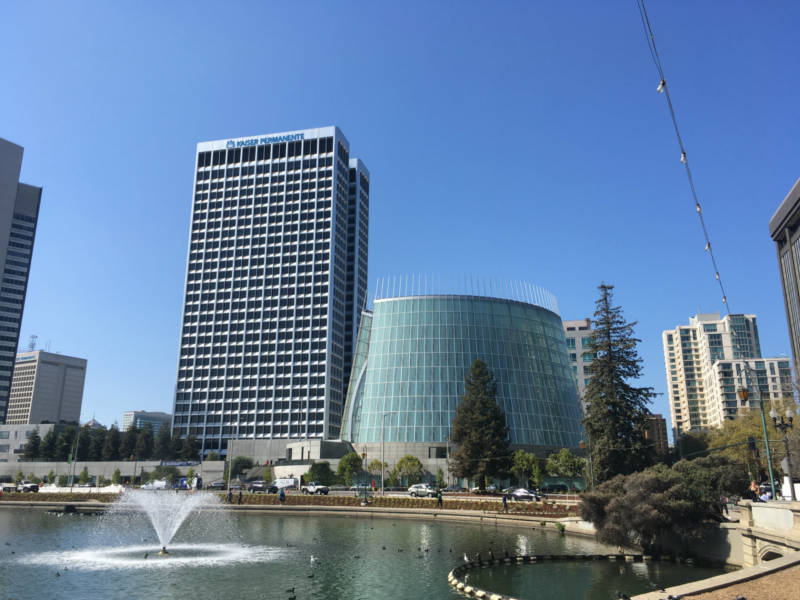The Catholic Diocese of Oakland has released the names of 45 priests, deacons and religious brothers who officials say are "credibly accused" of sexually abusing minors.
Of the 45 people named, 20 were priests. The others come from various religious orders from elsewhere, but worked and lived in the Oakland Diocese at some point.
Oakland is the latest in a series of dioceses across the country to release names amid a scandal involving pedophile priests and decades of church cover-ups.
Most of the listed abuse dates from the 1960s into the 1980s. Diocese officials say there have been no credible accusations of abuse since 1988, but acknowledge that the list may grow in the coming months.
"I pray the public acknowledgment of the sinful actions on the part of some priests will help many of us to find healing and hope, to restore our trust in the Church, and to repair the damage caused to the reputation of so many good priests," Oakland Bishop Michael Barber said in a letter.
The majority of those named have been previously identified through court filings or news articles. But five names have not been in the public domain until now, Stephan Wilcox, chancellor of the Oakland diocese, told the San Francisco Chronicle.
Wilcox said he's spent several weeks reaching out to survivors but hasn't yet spoken to all of them.
"Survivors in general were pleased with the step but still think the church needs to do more," he said.
Wilcox told KQED News that he has turned over the list of names and information to the Alameda County district attorney to determine if prosecutions are warranted. Aside from the fact that many of the accused have died, Wilcox said statutes of limitations may be an issue.
Wilcox also told KQED News that the diocese hopes the disclosure will begin to restore trust, but he says there's much to be done.
"It is a step in a much longer, broader process, but we have much more work to do in terms of transparency," he said.
Meanwhile, advocates for victims of abuse describe Oakland's list as incomplete.
"They've only listed 45 and I have 132 and those are lay teachers, brothers and priests that have lived and worked in the diocese," said Joey Piscatelli, a Northern California leader for the Survivors Network of those Abused by Priests or SNAP. "Their list is just way too short.
Piscatelli said some people might not have been put on the list because their alleged crimes took place outside of the Diocese of Oakland.
"They're leaving different names out for different reasons and they're all excuses to keep the list down," he said. "A lot of them that aren't on the list, it's because they molested or raped not in the Diocese of Oakland. They did it somewhere else."
Advocates said that while the diocese stated there have been "no credible incident of abuse of a minor by a priest or deacon" since 1988, that might not mean much since it takes victims decades to come forward, if ever.
Of the 20 priests in Oakland's list, 14 are deceased. The remaining six are not functioning publicly as priests — one was excommunicated or formally kicked out of the church and one was removed from clergy, according to the diocese. The other four still get room and board from the Diocese of Oakland. Wilcox told KQED News that the four have admitted to wrongdoing and are elderly. He said the church also monitors them.
In October, a law firm suing bishops for records on abuse released its own list of names of alleged abusers, totaling more than 200 clergy in the San Francisco Bay Area. The Jeff Anderson & Associates list included more names of clergy than those released by the Diocese of San Jose, and named 95 tied to the Diocese of Oakland — more than double the diocese's own list.
Wilcox said the current list was compiled by his office and other staff. There will also be an external review at the end of February to conduct a more "forensic view" of diocese files, he said.
"We are now adding an independent review of the entire set of files going back to 1962," he said. "I think it's important that we get a view of, are we doing best practices, where are we weak in our processes, relative to this part of our operation, where do we need to improve?"
The Associated Press and KQED's Polly Stryker contributed to this report.
